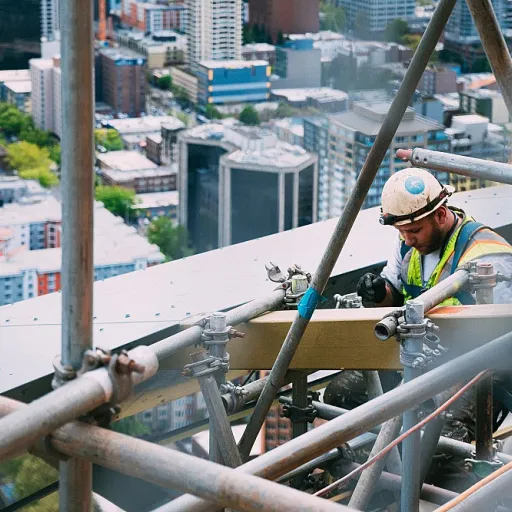
Understanding the purpose of a pre screening interview
Why pre screening interviews matter in tech hiring
When a company starts the hiring process for a tech position, the pre screening interview is often the first real conversation between the candidate and the hiring manager. This step is more than just a formality. It helps both sides quickly decide if moving forward makes sense, saving time and resources for everyone involved. For candidates, it’s a chance to get a first impression of the company culture and work environment. For hiring managers, it’s an opportunity to check if the candidate’s background and expectations align with the job description and company needs.
Setting the stage for a successful interview process
Pre screening interviews are designed to filter out candidates who may not be a good fit early in the process. This means asking targeted screening questions that focus on the essentials: technical skills, communication, motivation, and alignment with the company’s values. The goal isn’t to grill candidates with tough interview questions, but to have an honest conversation about the role, the team, and what the company is looking for in a new hire. This helps ensure that only the most relevant candidates will move forward to more in-depth interviews, making the entire hiring process more efficient.
Maximizing efficiency and candidate experience
Companies that invest in a thoughtful pre screening interview process often find job interviews later on are more productive. By clarifying expectations early, both sides can spend time on what matters most: assessing if there’s a real match. This is especially important in tech, where talent is in high demand and candidates will often have multiple opportunities. A well-run pre screening interview can set your company apart, showing candidates that you value their time and are serious about finding the best fit for your team. For more on how efficiency is shaping tech hiring, read about efficiency as a service in tech hiring.
Key skills to evaluate during the pre screening interview
What hiring managers should focus on during screening
When you conduct a pre screening interview in tech hiring, it’s not just about checking off boxes on a job description. The goal is to quickly identify if a candidate could be a good fit for your company’s work environment and culture, as well as the technical demands of the position. This stage is crucial in the hiring process because it saves time for both candidates and hiring managers, ensuring only the most relevant talent moves forward.
- Technical fundamentals: Assess whether the candidate understands the core technologies and tools required for the job. This doesn’t mean deep technical grilling, but screening questions should confirm they have the baseline knowledge to succeed.
- Problem-solving approach: Ask questions that reveal how the candidate tackles challenges. You want to see if their thinking aligns with your company’s way of working and if they can adapt to new situations.
- Communication skills: In tech, being able to explain complex ideas simply is a must. During the interview, pay attention to how clearly the candidate describes their experience and answers questions interviewers ask.
- Motivation and career goals: Find out why the candidate wants this job and how it fits into their career. This helps you gauge if they’ll be engaged and stick around, which is key for long-term hiring success.
- Cultural alignment: Screening interviews are a good time to discuss your company culture. Ask about work preferences and values to see if the candidate will thrive in your environment.
It’s easy to overlook soft skills or focus too much on technical details, but a balanced approach leads to better hiring outcomes. For more on how the interview process can be affected by technology, especially applicant tracking systems, read about how ATS systems complicate job searches. This can help you refine your pre screening strategy and make the most of every interview pre session.
Common challenges in tech pre screening interviews
Why Pre Screening Interviews Can Be Tricky in Tech Hiring
Pre screening interviews in tech hiring are essential, but they come with their own set of challenges. The fast pace of the industry, evolving job descriptions, and the need to quickly identify top talent can make the interview process more complex than in other fields. Here are some of the most common hurdles hiring managers and recruiters face during screening interviews:
- Technical Jargon and Communication: Not every candidate is equally skilled at explaining their technical experience. Some may have the right skills for the job, but struggle to communicate them clearly in a pre screening interview. This can make it hard to assess if they are a good fit for the position or the company culture.
- Time Constraints: Screening interviews are often short, so hiring managers must balance asking the right screening questions with giving candidates enough time to showcase their abilities. Rushed interviews can lead to missing out on great talent or making poor hiring decisions.
- Consistency in Evaluation: Without a structured approach, different interviewers may ask different interview questions, leading to inconsistent assessments. This can impact the fairness of the hiring process and make it harder to compare candidates objectively.
- Remote Work and Virtual Interviews: With more companies offering remote work, many pre screening interviews now happen online. This can introduce technical issues and make it harder to read non-verbal cues, which are often important in understanding a candidate’s fit for the work environment.
- Volume of Applicants: Tech roles often attract a high number of applicants. Screening interviews help narrow the pool, but managing a large volume of interviews can be overwhelming and lead to fatigue, which may affect the quality of the evaluation.
To overcome these challenges, it’s important to spend time preparing clear interview questions and align them with the job description. Using a structured approach, as discussed in other sections, helps ensure each candidate gets a fair chance to demonstrate their skills and potential. For more insights on optimizing the interview process and enhancing the candidate experience, read this guide on enhancing user experience in tech hiring.
Structuring your pre screening interview for tech roles
Designing a Flow That Saves Time and Reveals Talent
Structuring your pre screening interview is about more than just ticking boxes. A well-organized interview process helps hiring managers quickly identify if a candidate is a good fit for the job and company culture, while also respecting everyone’s time. Here’s how to create a screening interview that works for both your company and the candidates:
- Start with the essentials: Begin by reviewing the job description and defining the must-have skills and experience for the position. This ensures your screening questions are relevant and targeted.
- Set clear objectives: Decide what you want to learn from the interview pre call. Are you checking technical skills, communication, or alignment with your work environment? Having a focus helps you avoid generic questions and makes the interview process more efficient.
- Prepare structured questions: Use a mix of open-ended and direct screening questions. For example, ask about past projects, problem-solving approaches, or how candidates will handle specific challenges at your company. This gives you a sense of their leadership potential and career motivation.
- Keep it consistent: Use the same set of core interview questions for all candidates. This makes it easier to compare answers and reduces bias in your hiring process.
- Allow room for conversation: While structure is important, leave space for candidates to ask questions or elaborate on their experience. This helps you gauge their interest in the position and gives them a chance to find out if your company is the right place for their career.
- Time management matters: Plan the interview so you can cover all key points without rushing. Most pre screening interviews should last 20-30 minutes. Spending more time than necessary can lead to fatigue for both sides and reduce the quality of your assessment.
Remember, a well-structured screening interview not only helps you find job-ready talent but also improves the candidate experience. When candidates feel the process is organized and respectful, they’re more likely to see your company as a great place to work.
Red flags and green lights to watch for
Spotting the Signals: What to Look for in Pre Screening Interviews
During the pre screening interview, hiring managers and recruiters need to be alert to both red flags and green lights. These early signals can help determine if a candidate is a good fit for the job, the company culture, and the work environment. Identifying these cues early in the interview process saves time and helps focus on the best talent. Red Flags That Shouldn’t Be Ignored- Vague or inconsistent answers: When candidates struggle to provide clear responses to screening questions about their experience or job description, it may indicate a lack of relevant skills or preparation.
- Poor communication: In tech roles, the ability to explain technical concepts is crucial. If a candidate cannot articulate their work or answer interview questions clearly, this could be a concern.
- Negative attitude towards previous employers: Candidates who speak poorly about past companies or teams may not be a good fit for your company culture.
- Lack of curiosity: If the candidate does not ask questions about the position, company, or team, it might signal low engagement or interest in the role.
- Unexplained gaps or job hopping: While career changes are common in tech, candidates should be able to explain transitions and gaps in their work history.
- Relevant experience: Candidates who can clearly connect their past work to the job requirements show they understand the position and have the right background.
- Strong communication skills: Clear, concise answers and the ability to break down complex topics are essential in tech roles and leadership positions.
- Alignment with company values: Candidates who express interest in your company’s mission and demonstrate understanding of your work environment are more likely to thrive.
- Proactive questions: Good candidates will ask thoughtful questions about the team, projects, and growth opportunities, showing they are invested in their career and your company.
- Problem-solving mindset: Look for candidates who describe how they approach challenges, not just what they have done. This signals adaptability and potential for growth.
Hiring managers should spend time preparing interview questions that reveal both technical skills and cultural fit. During the interview pre screening, take notes on how candidates respond, and compare their answers to the job description and your company’s needs. Remember, the goal is not just to fill a position, but to find job seekers who will contribute positively to your team and company in the long term.
Improving candidate experience during pre screening
Creating a Positive First Impression
The pre screening interview is often a candidate’s first real interaction with your company. This early stage sets the tone for the entire hiring process. When candidates feel respected and informed, they are more likely to see your company as a good fit for their career goals. Clear communication about the job description, the interview process, and what to expect next helps build trust from the start.Respecting Candidates’ Time
Tech talent is in high demand, and candidates will appreciate it when hiring managers value their time. Keep screening interviews concise and focused. Avoid repetitive questions interview after interview. Instead, tailor your screening questions to the position and the candidate’s background. Share an estimated min read time for any pre-interview materials, and stick to the scheduled time for the call. This shows that your company respects the candidate’s work-life balance and time commitments.Personalizing the Interview Experience
Generic questions can make candidates feel like just another number. Instead, reference specific details from their resume or application. Ask about their leadership experiences or how they solved a particular technical challenge. This approach not only makes the interview more engaging, but also helps you assess if they are a good fit for your work environment and company culture.Providing Transparency and Feedback
Candidates want to know where they stand. After the screening interview, communicate next steps and timelines. If possible, offer brief feedback on their performance or clarify why they may not be moving forward. This transparency enhances your company’s reputation and encourages top talent to reapply for future positions.Ensuring a Consistent and Fair Process
A structured interview pre process with standardized screening questions ensures every candidate is evaluated fairly. This consistency helps reduce bias and gives all candidates an equal opportunity to showcase their skills. It also makes it easier for hiring managers to compare candidates and make informed decisions.- Communicate clearly about the job and interview process
- Respect candidates’ time and keep interviews focused
- Personalize questions to each candidate’s background
- Be transparent about next steps and provide feedback
- Use a consistent set of screening questions for all candidates













